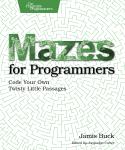Enumerated types in Ruby
It’s not often that I need an enumerated type in Ruby—there is usually a more elegant way of doing things, I’ve found. But when I’m interfacing with a C library (such as fmod, in this case), it can be a pain to stop and define constants for every enumerated type.
It’s probably been done before, but I found the following little class quite helpful:
1 2 3 4 5 6 7 8 9 10 11 12 13 |
class EnumeratedType class <<self def start(n) @next_value = n end def const_missing(sym) @next_value ||= 0 const_set(sym, @next_value) @next_value += 1 end end end |
It lets you create enumerated types like this:
1 2 3 4 5 6 7 8 9 10 11 12 13 14 15 16 17 18 19 |
class OutputType < EnumeratedType AUTODETECT UNKNOWN NOSOUND WAVWRITER DSOUND WINMM ASIO OSS ALSA ESD SOUNDMANAGER COREAUDIO XBOX PS2 GC XBOX360 PSP end |
If you want to start with a different integer than 0, you can just do:
1 2 3 4 5 |
class OutputType < EnumeratedType start 15 AUTODETECT ... end |
You can also use start anywhere in the list, to have subsequent constants enumerated starting with the given value.


Reader Comments
Ok this is way cool. I’m still trying to digest the syntax. You make a point of saying “there are more elegant ways of doing things…” For this particular problem, I could only come up with a hash using perhaps symbols, but I’m not convinced this is any more elegant. Did you have something else in mind when you made the comment?
2 Feb 2007
Chuck, you’ll have to give me a specific example of where you think you need enumerated types, and then let me counter it with how I’d do it in Ruby. In practice, I’ve found I only need them when interfacing with an external, native library that uses them.
2 Feb 2007